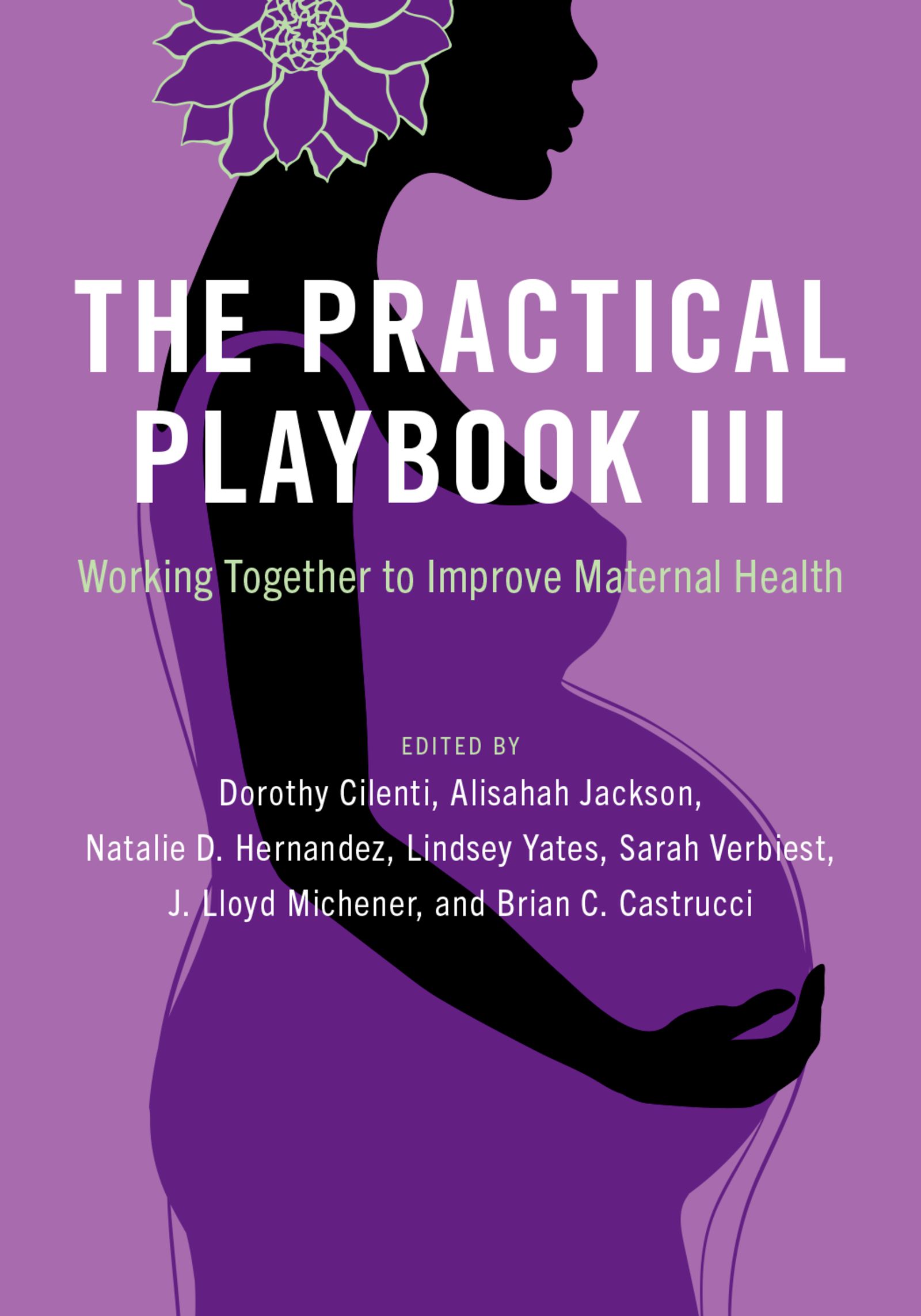
We cannot let these trends continue. Fortunately, we are not starting at zero. This emergency has spurred individuals and organizations in public health and other sectors to act, collaborating on innovative, equity-centered strategies to advance maternal health. With our co-editors and authors, we have collected these learnings in our new book, The Practical Playbook III: Working Together to Improve Maternal Health. (Read the news release here.)
Facing a crisis this complex and widespread makes it easy to despair. However, the dozens of case studies and real-world examples in The Practical Playbook III show there is reason for hope. At the local, state, and federal levels, real interventions taking place today are making a dent in the numbers. In The Practical Playbook III, you will read about partners within and outside of public health who have made strides toward maternal health equity — and how they did it.
We know there are strategies that are working. Now we need to bring them to scale so that people in all communities, particularly those who experience the greatest burden, can achieve better maternal health outcomes. These strategies may differ across locations and sectors, but whether you’re a community activist, health care provider, data scientist, or policymaker, you will find insights tailored to your contexts and issues. What unites these examples, as with the other titles in the Practical Playbook collection, is the emphasis on collaboration — we cannot operate in silos and expect to make a difference in maternal health and well-being.
It takes committed partners approaching maternal health from various angles to effect change. This is reflected in the diversity of our more than 150 contributors, who come from all professional and educational backgrounds. We are especially privileged to feature stories from people about their own pre- and post-natal journeys that highlight the true costs of inequities in maternal health. Their experiences can influence how we develop interventions, helping to prevent future generations from enduring today’s injustices in maternal health.
In addition, to ensure that all potential collaborators can benefit from the book’s guidance and examples, we are publishing it in an open-access, online format as well as print. We encourage you to share the book, in whole or in part, as you explore new programs and collaborations.
With this book, you have a comprehensive road map for improving maternal health in your community, guided by those who deeply understand the work. You will be more confident pursuing multi-sector partnerships with the knowledge and wisdom of those who have been on this path. Amid the national maternal health crisis, we derive motivation and inspiration from the numerous examples of real people who remain dedicated to ending these preventable deaths and suffering. We hope that you will be similarly galvanized in your own journey with the support of The Practical Playbook III.
Solutions are within reach. Together, we can reverse the staggering rates of maternal morbidity and mortality so that women, birthing people, and their families and communities can thrive.
The Practical Playbook III: Working Together to Improve Maternal Health is a guide for researchers, community activists, and advocates offering tools and strategies to advance maternal health equity through multi-sector collaborations. It highlights examples of effective cross-sector partnerships that are making real improvements in health outcomes for maternal health populations and provides a road map for practitioners working in this space. The Practical Playbook III may be purchased in print from Oxford University Press or accessed online free of charge on their website.




